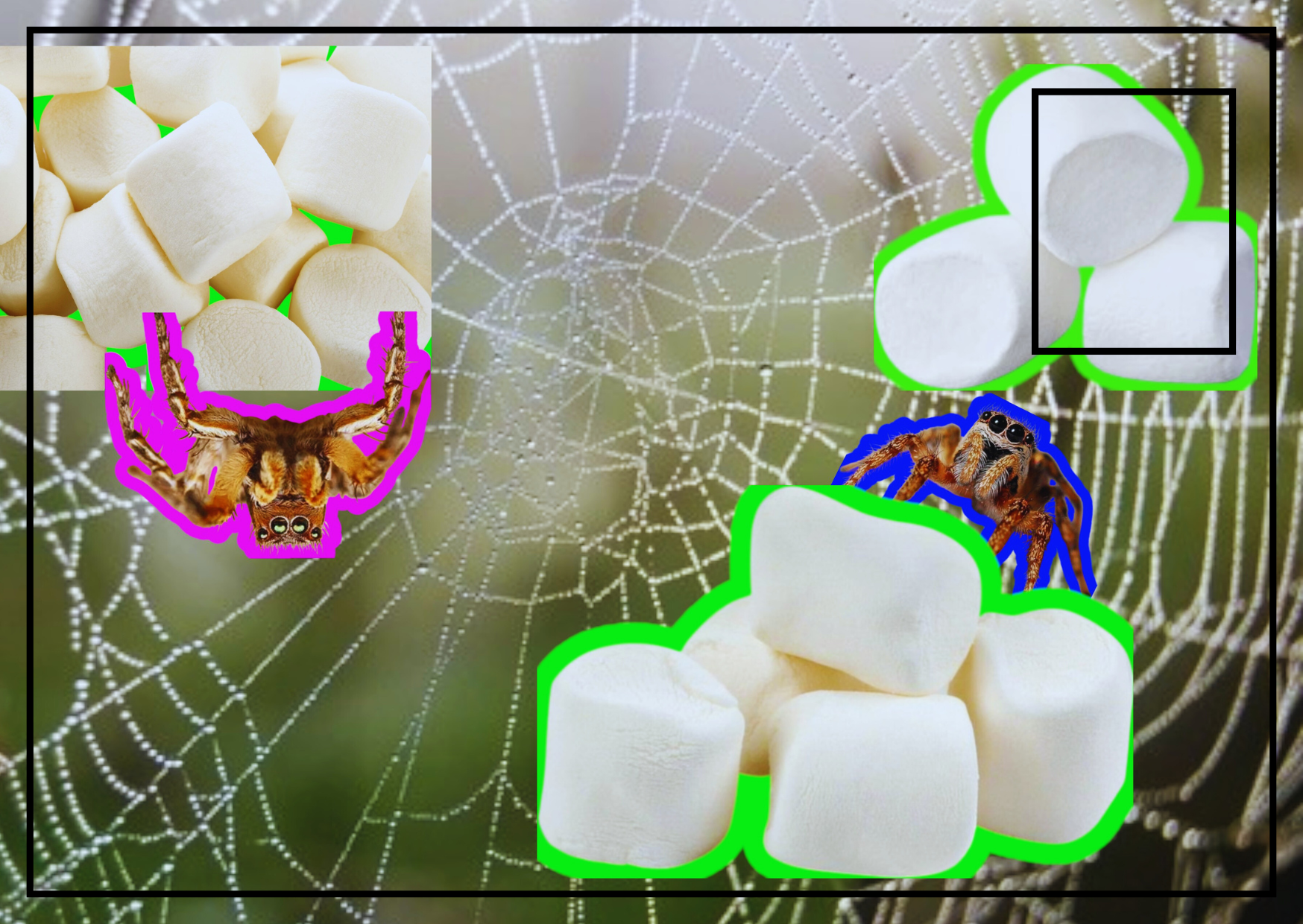Send us a postcard!
The following postcards are created from a conversation between the Blog x Anna Estdahl, Lavanderia’s coordinator of artistic residencies. Our chat was mediated by the Mobilising Words1 card game and unfolded into an unfinished meditation about interdependence—the emotional, ethical, and structural complexities of living in relation to others, a contemplation about strength not as endurance, but as elasticity and care, and about survival—whether emotional or political—that depends on the nets we weave between ourselves and others.
The postcards are invitations for you to join our conversation,
to play with us,
to imagine with us.
Send us a postcard
with your thoughts,
random words,
foggy images,
flashing references
or songs.
What comes up?

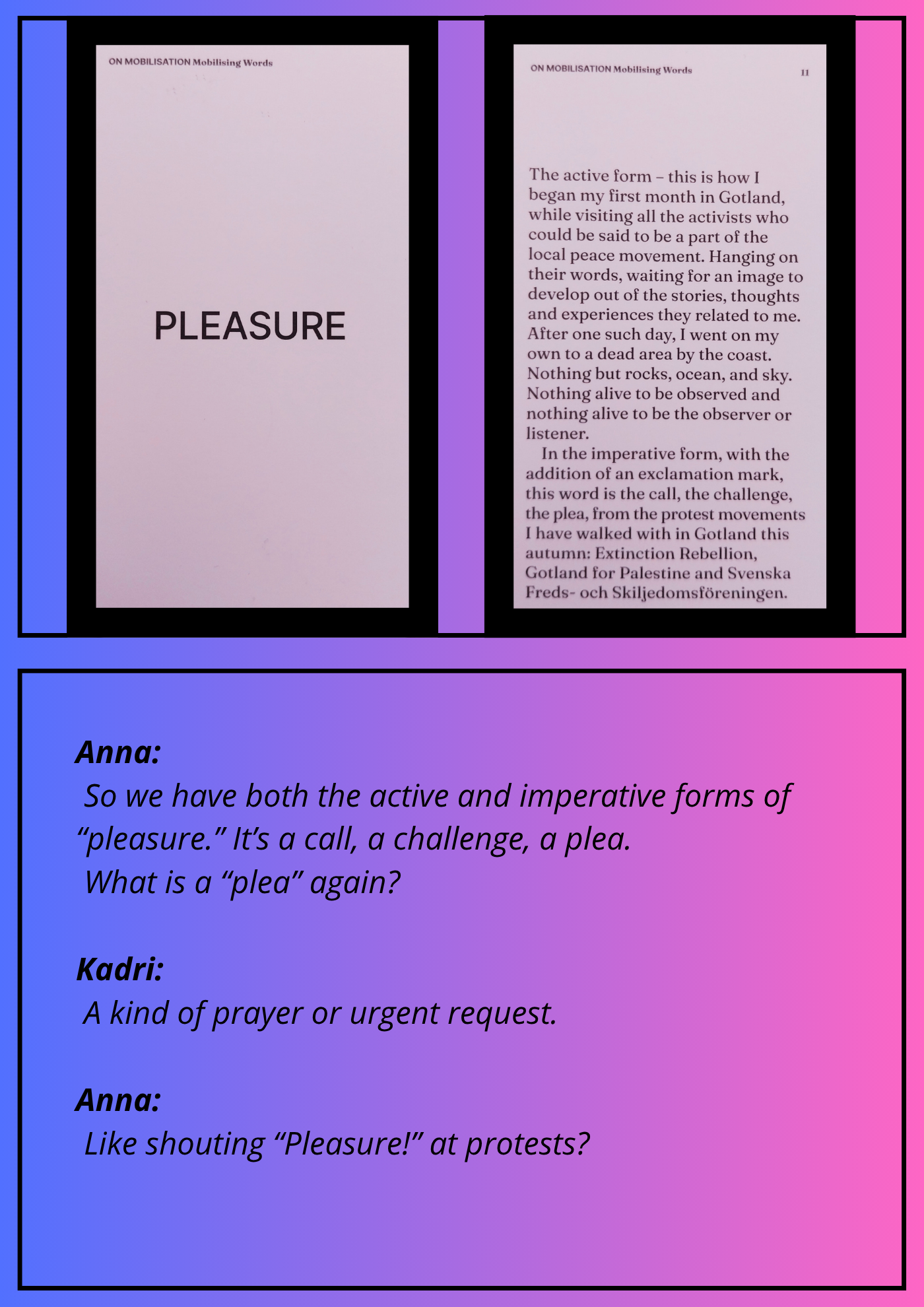

Anna: Interesting idea. Seems counterintuitive though. Protest movements focus more on justice, human rights—asserting things not being honored…
Kadri: …yeah, not directly about “pleasure”…
Anna: …that part about meeting local activists does resonate with “pleasure” in a way—connecting with people, learning. But shouting… Pleading “pleasure” at a protest?
It doesn’t align. Protest is about urgency, injustice, survival…
…but being part of a demonstration can be a kind of pleasure—feeling you’re doing something, even if small.
Yes! A sort of self-consolation too. You’re powerless to stop it, but you’re showing up, being visible. That matters…
…I was chatting with a colleague—she went to the “Red Line” protest in The Hague. In May, it was 100,000 people; in June, 150,000. It’s growing!
Same in Torino. “Torino per Gaza.” It started with students and pacifists, and now it’s more intergenerational. Last week’s2 protest had over 8,000 people. And the media coverage has shifted… before they framed it negatively—“pro-Hamas,” “pro-Palestinian”—but now it’s acknowledged as a civil movement opposing genocide. The media is shifting.
So coming back to pleasure—I think there’s a kind of pleasure in standing with others, saying something collectively. That shared resonance…
…there’s value in telling stories, in touching people through them—not just asserting facts, but engaging empathy.
Otherwise people deflect—”It’s not my business. They’re Islamic. The state is exporting democracy.” They push it away.
For example, on Sunday I shared a fundraising link in my family’s WhatsApp group—for eSIMs to help people in Gaza access the internet. And someone said, “Why don’t they have internet?” Others began attacking the whole idea. I ended it by saying, “Donate if you want. If not, stay silent. “ And they said to me at the end to post only nice things: “And please, if you want to post. Only nice things. Things that don’t ruin our Sunday mood. Things like this:”
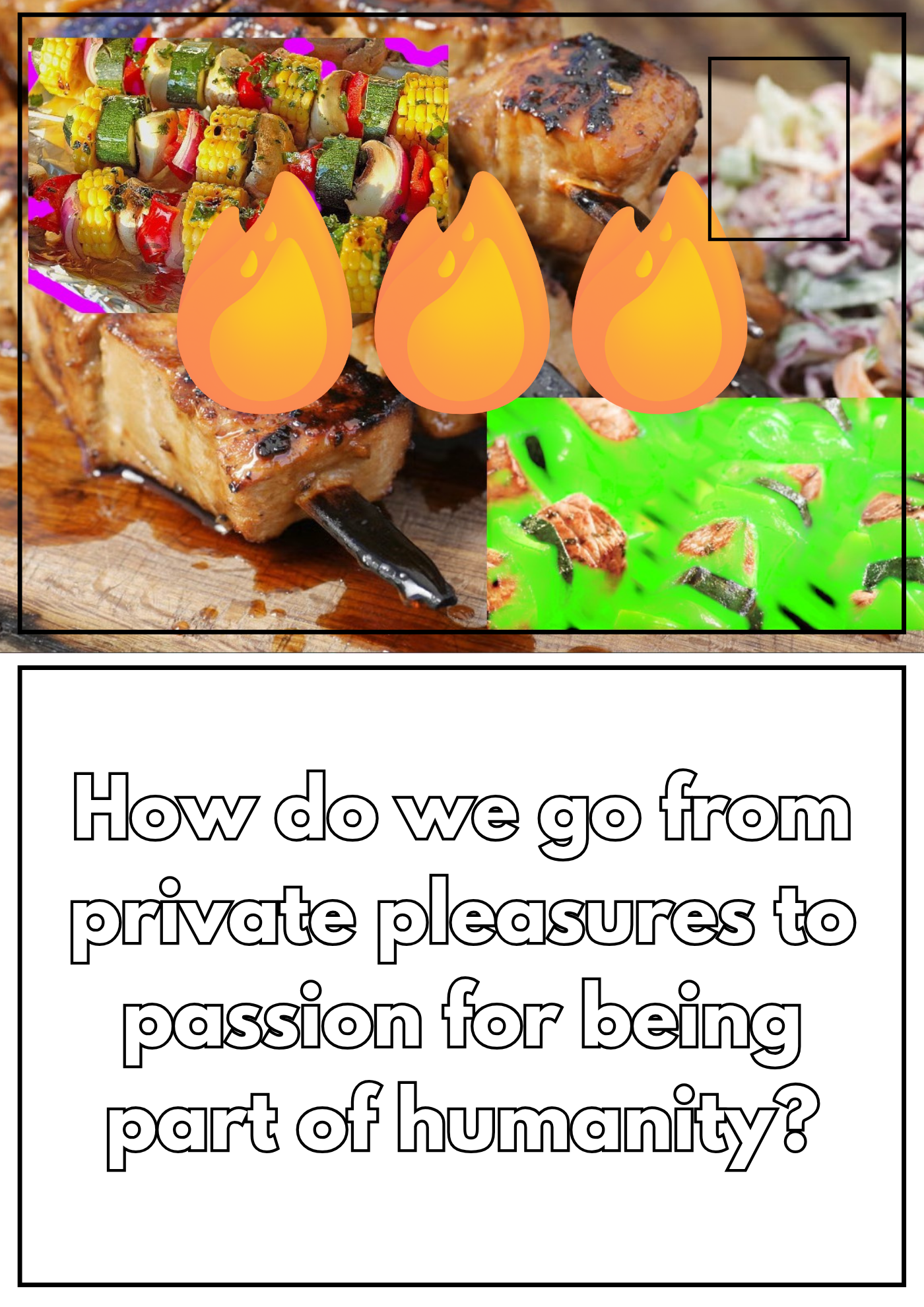

Anna: People often associate pleasure only with fun, food, relaxation. But how can you enjoy life when you know what’s happening elsewhere? I’m not talking about taking pleasure in pain—but feeling part of humanity. That’s the only real kind of pleasure, I think—empathy.
And last year, we talked a lot about pleasure as a revolutionary trigger. Yes, pleasure empowers us—but how do we go from that to passion? To fighting for something?
Yes, how do you go from pleasure to being passionate? And then going over from pleasure that you might have on your own private island to connecting it to what there is around you. So, a pleasure that is not isolated from the world around us?
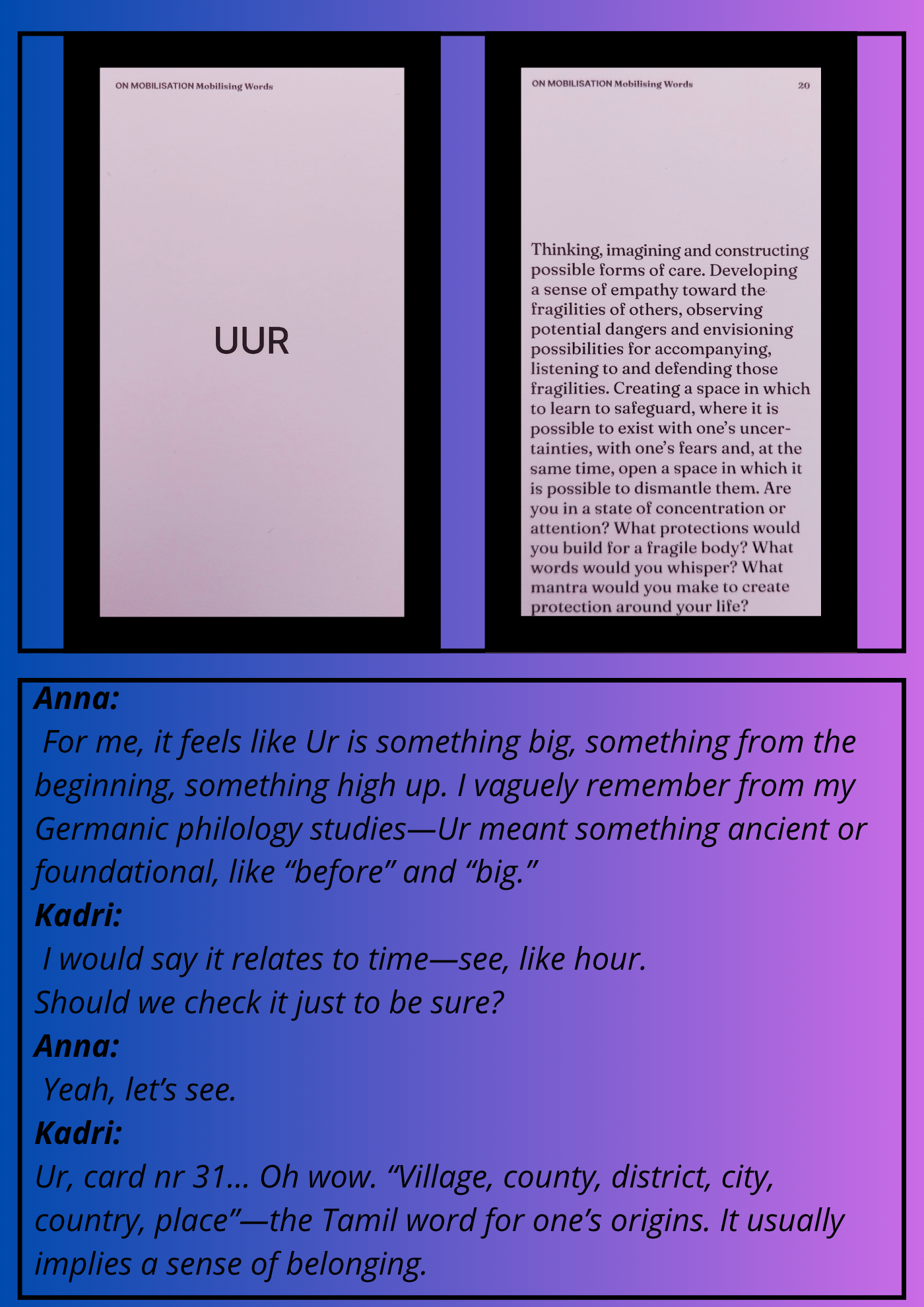

Anna: Yeah—it’s all about care and empathy. It emphasizes relationships—relationality. So in that sense, Ur becomes more than a physical place. It’s a community, a net of relationships you can rely on—people you can count on.
Kadri: How do we show empathy to those who are fragile or in need of care?
Anna: I think by listening. By being present. Even in silence—just being seen is incredibly important when you’re going through something hard. To have someone who simply acknowledges your pain.
I remember when my mother was close to dying—her body was so fragile. And I whispered to her:
You can do whatever you want. If you want to go, you can go. We’re here. We’re prepared. Don’t worry. Don’t be afraid of pain, or that we won’t know what to do without you. Don’t feel lonely. You are free. Go toward the light, if that’s what you want.
Kadri: So, you gave her permission. You said, “It’s okay either way. You can go or stay. You don’t have to worry about us.”
Anna: I think being a caregiver is the hardest part—giving care while sometimes feeling like you can’t take it anymore.
So—it depends who the “fragile body” is. That’s really the question.
And it’s not always clear. Because when the card talks about “building protection “around your life,” it’s also about yourself. So how do you protect your own life, while taking care of someone else’s?
Because when you’re caring for someone like that, you absorb everything. You lose yourself. Your life disappears.
So… how do you choose who you care for?
Maybe one way to care for yourself is to set limits. But if you don’t know where your limits are, how do you set them?
Kadri: Hmm.
Anna: I think not knowing our limits comes from fear.
Often fear is our biggest mistake. Fear of change. Fear of doing something different.
I think the real issue is leaving behind what’s familiar—even when it’s painful. That’s why we keep going beyond our limits. We put a lot of effort to keep what we know.
And I think this happens outside personal life, too. In work environments, for example. Some people are afraid to let go—afraid to delegate, or share power or space. So they hold on tightly.
And that becomes the structure.
So the question is…
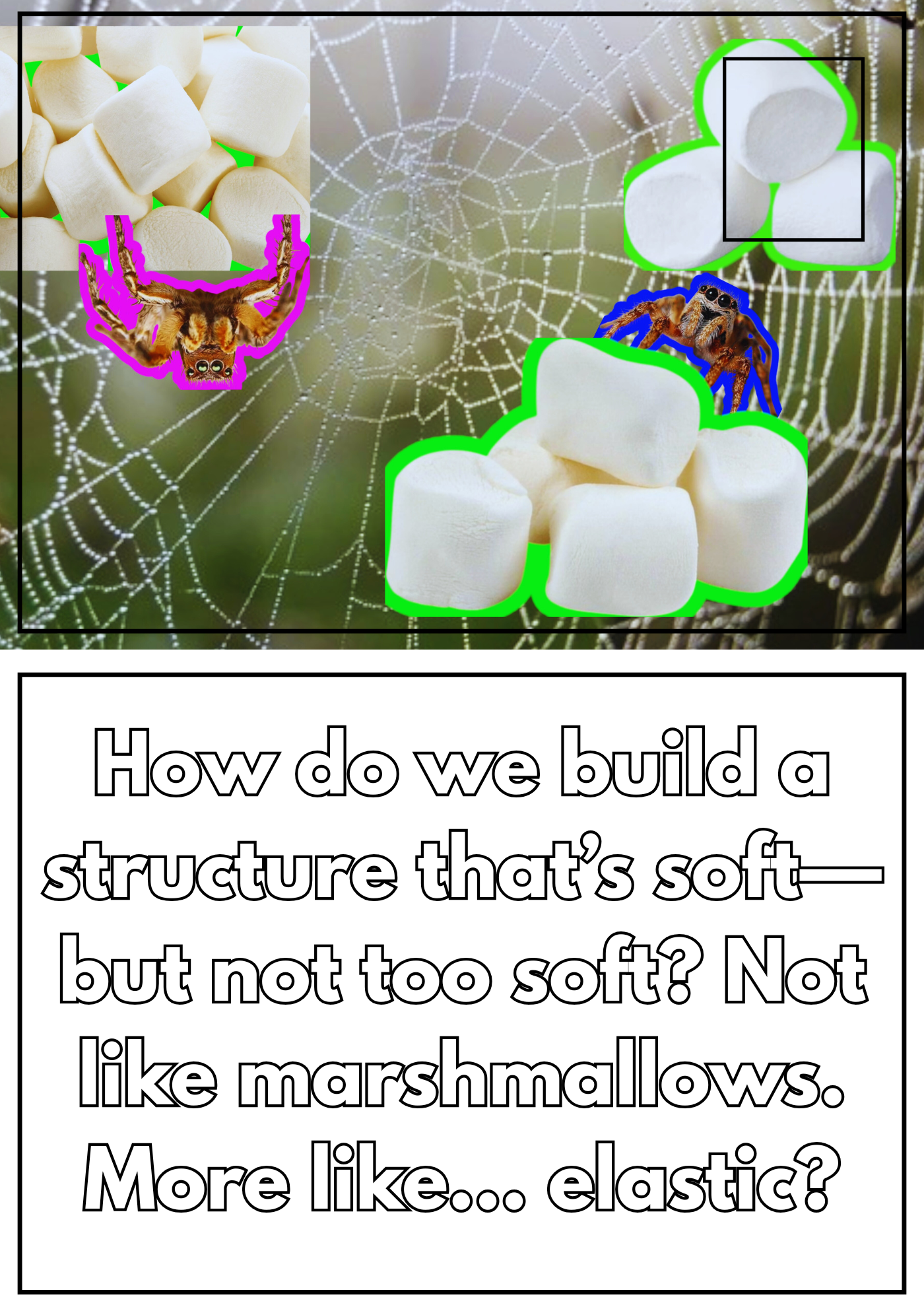

Anna: What’s the word in English—elastico?
Kadri: Elastic, yeah.
Anna: Yes—like a net. Like a spiderweb. Fragile, sticky, but flexible.
Kadri: Yes.
Anna: You can stretch it. You can fall and still climb back up. I like that. Spiderwebs.
Actually, I like spiders. They’re so timid—like “You don’t see me, you don’t see me, I’m invisible!”—but they’re also incredibly prepared. Always alert.
They teach us about concentration. Attention.
And I love when you see a spider just floating through the air, building something from nothing. It’s funny and inspiring. They’re so brave—like, “I’ll build my castle right here, in the middle of the street.”
How do they choose where to land? I don’t know.
So, Ur is a net!
I like that comparison. A net. Ur is a net.
We’ve found another definition!
Kadri: Yes.
Anna: Spider-man!

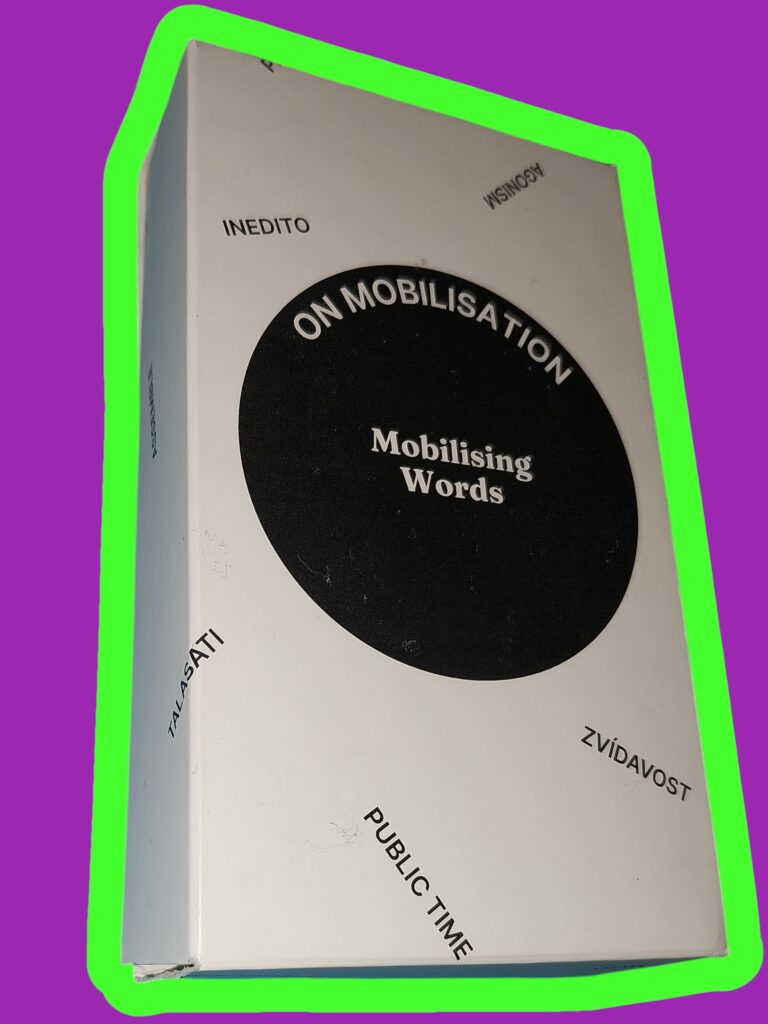
1Mobilising Words is card game that gathers the collectively built knowledge between parters and local communities of the On Mobilisation3 project and offers practical, poetic, and political insights into mobilising communities through culture, care, and creativity.
The game models a form of collective inquiry where words are not just linguistic units but tools for sense-making, reflection, and transformation.
It is available to download HERE!

3On Mobilisation is a project that from April 2023 continued over two years, focussing on community mobilisation through artistic processes.
With Lavanderia a Vapore as one of the partners (among wpZimmer, Baltic Art Center, Studio ALTA, and the two associated partners: Antwerp Research Institute for the Arts and Uppsala University Graduate School in Sustainability Studies), the main objective of the project was to respond to the need for transnational creation and circulation of knowledge through capacity bulding.
To celebrate the conclusion of the project in May 2025, there are now published two instruments – the On Mobilisation Toolkit and the Mobilising Words card game to share the knowledge that emerged in the project with the public.
2The conversation with Anna took place on the 18th of June 2025.
Article created by Kadri Sirel.
